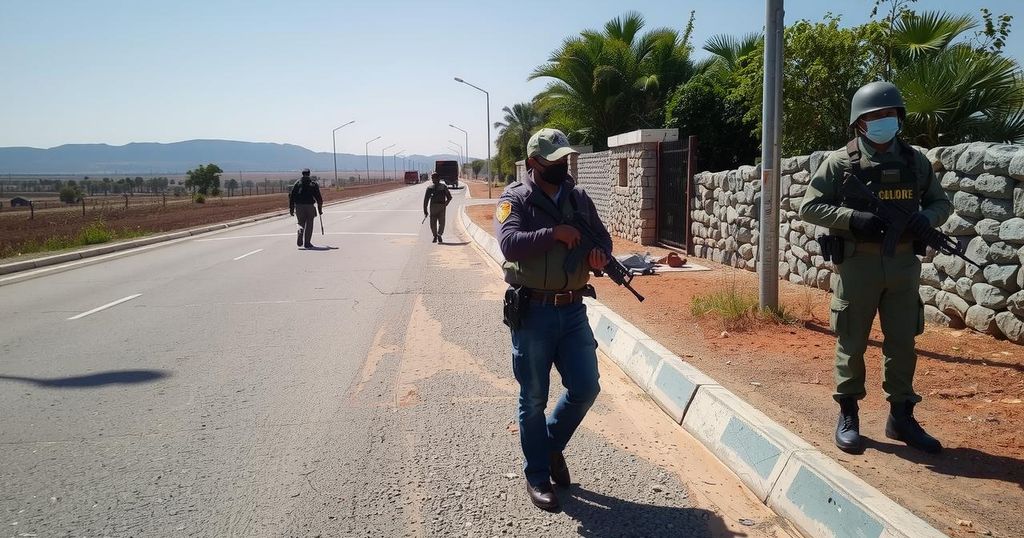South Africa has increased security along its border with Mozambique in response to violent protests following the controversial election results. As unrest has claimed at least 261 lives, regional stability is threatened, prompting diplomatic efforts from South Africa to engage with Mozambique. The situation has led to significant human displacement, with refugees seeking safety in Malawi.
In response to the escalating violence in Mozambique, South Africa has reinforced security along its border to mitigate potential crime arising from the unrest. Recent protests, which erupted after the November presidential election results declaring Daniel Chapo of the ruling Frelimo party as the victor, have claimed at least 261 lives, primarily due to police gunfire. Notably, the opposition has vehemently rejected the election results, resulting in increased disturbances.
Following the initial protests, the Constitutional Council upheld Chapo’s election, albeit reducing his vote percentage to 65%, a move that has ignited further clashes. The South African government is engaging with Mozambican authorities, seeking collaborative solutions to restore order in affected regions. South Africa’s National Joint Operations and Intelligence Structure (NATJOINTS) emphasized the importance of their diplomatic ties and cooperation in addressing these challenges.
South Africa had previously closed its border crossing at Lebombo Port due to the intense violence, during which demonstrators set vehicles ablaze. In light of the unfolding crisis, President Cyril Ramaphosa dispatches special envoy Sydney Mufamadi to Mozambique to address the violence threatening regional stability.
Amidst the turmoil, a significant jailbreak saw over 1,500 inmates escape from Maputo Central Prison, igniting serious concerns regarding public safety. The instability has led to an influx of approximately 3,000 refugees seeking refuge in Malawi, impacting fuel imports and triggering humanitarian responses, as local authorities strive to accommodate the displaced families.
These developments underscore a pressing need for effective intervention to restore peace and security to both nations, particularly as violence continues to drive citizens across borders in search of safety.
The situation in Mozambique has intensified since the late October elections, with widespread protests following the declaration of Daniel Chapo’s election victory. The opposition’s claims of electoral fraud have fueled unrest, leading to a tragic death toll. South Africa’s increased border security reflects deep concerns over potential spillover effects from this instability, highlighting the interconnectedness of regional security dynamics. As violence escalates, cross-border movements of individuals seeking safety have become a significant issue, impacting neighboring countries like Malawi.
In conclusion, the unrest in Mozambique has prompted South Africa to heighten border security measures in an effort to mitigate crime and maintain regional stability. The tragic loss of life due to the protests underscores the urgency for diplomatic engagement to quell the violence. With many fleeing to neighboring countries for safety, the situation calls for cooperative efforts between South Africa and Mozambique to restore order and address the humanitarian impact of the ongoing turmoil.
Original Source: www.aa.com.tr






